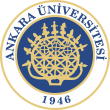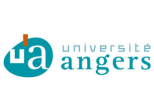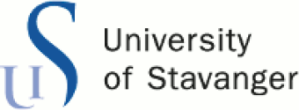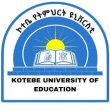skills4justice
HORIZON 2020 Project
SKILL PARTNERSHIPS FOR SUSTAINABLE AND JUST MIGRATION PATTERNS (SKILLS4JUSTICE) HORIZON-CL2-2023-TRANSFORMATIONS-01-03 No. 101132435





RESEARCH METHODOLOGY
Background of research problem
According to European Labour Authority (2020) the shortages of skills workforce are high in 28 occupations currently employing 14 percent of total EU workforce and concern the sectors of STEM, healthcare, IT and communication, as well as transport, hospitality, retail, manufacturing and construction.
Scientific rationale
Existing research does not directly targets research of skill matching in the labour markets of destination and origin countries in relationship to the migration, nor does it show the potential of the partnerships between the stakeholders of skill formation and deployment in these countries to enable sustainable and fair patterns of migration and skill distribution.
Theoretical Framework
Theoretical perspective of skill matching in the labour market explains the factors of skill matching in the labour market and discloses it’s implications for migration.
Research goal, objectives and questions
This project aims to develop systemic analysis of skills shortages in the 5 EU countries and 6 non- EU countries in the context of the global workforce migration by providing research-based evidence on the nature and development of skill shortages as well as on the potential of different skills partnerships to tackle these shortages in the countries of origin and destination of migrants.
Research design and methods
The research proposed in this project is interdisciplinary in terms of diverse research objectives and use of theories and methodologies from different disciplines.
PROJECT ACTIVITIES – RESEARCH WORK PACKAGES
WORK PACKAGE 2
Designing of the shortage model for recruitment of skilled workers in the countries of destination and transition countries (France, Germany, Italy, Poland, Lithuania, Norway, UK) by referring to the agency of existing skill partnerships in these countries. Implementation period: January-December 2024. Leading partner: Leeds University Business School.
WORK PACKAGE 3
Evaluation of the labour market in analysing matching needs and shortages of skilled workforce in the countries of origin compared to the countries of destination and transition countries (Ukraine, Turkiye, North Macedonia, Ethiopia). Implementation period: January-December 2024. Leading partner: Ss. Cyril and Methodius University in Skopje.
WORK PACKAGE 4
Surveying skilled migrant workers in the countries of destination and origin (returned migrants). This work package will consist of quantitative survey of migrant workers by surveying in face-to-face and online formats, as well as a qualitative study bv interviewing at least 20 migrants /returned migrants in each partner country. Implementation period: January-December 2025. Leading partner: University of Ankara.
WORK PACKAGE 5
Analysis of conditions of local development processes, foreign upskilling and recruitment, capitalization on the positive effects of migration for skill development. Implementation period: January – June 2025. Leading partner: ITB University of Bremen.
WORK PACKAGE 6
Toolkit for establishment and maintaining of skill partnerships between the origin, transitional and destination countries aimed to foster sustainable and fair practices of skill formation, mobility and recruitment of the migrant workers. Implementation period: July – December 2026. Leading partner: Warsaw University School of Economics.

Our Partners













